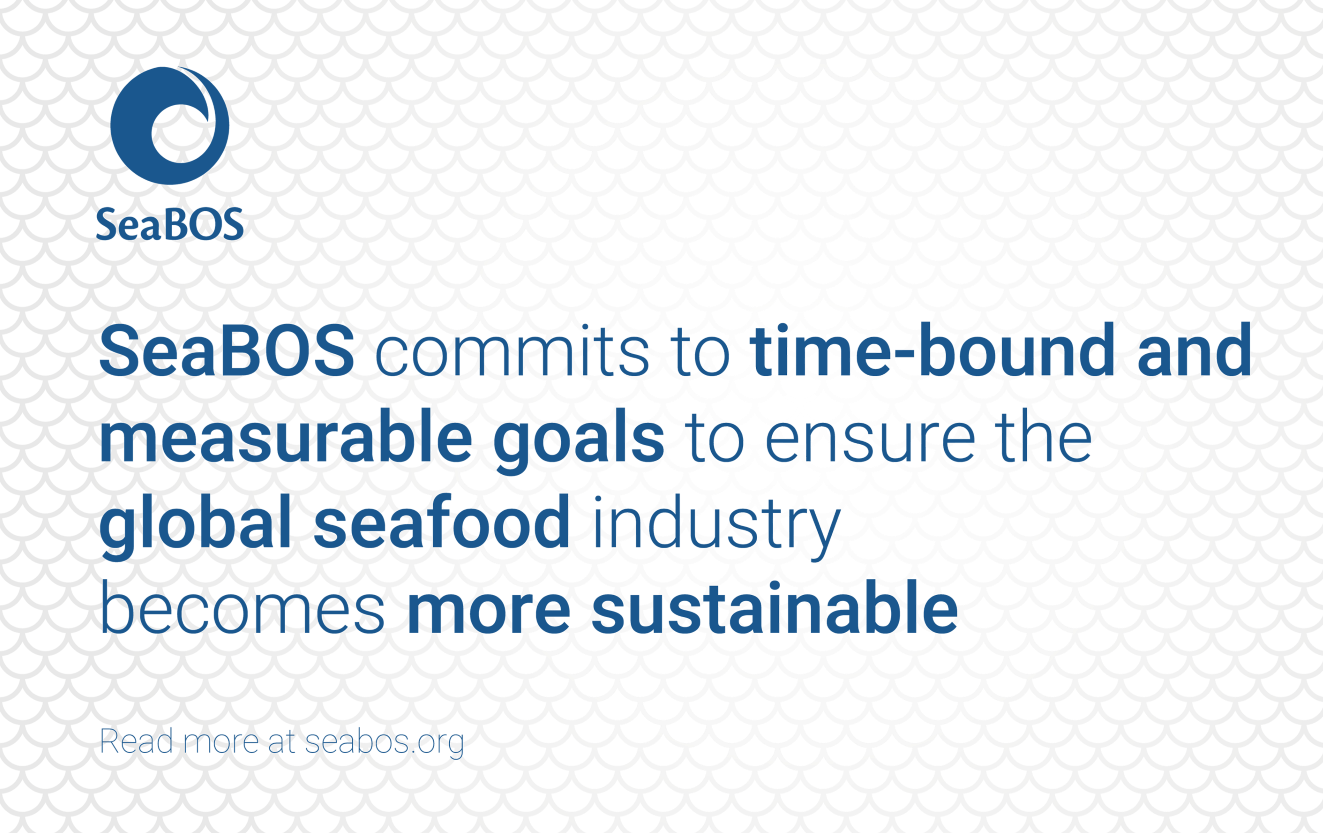Today, five of the most influential industry and multi-stakeholder platforms in the seafood sector have released a joint statement calling for action to combat the scourge of illegal, unreported, and unregulated (IUU) fishing.
“Nowhere to land, nowhere to sell” - SeaBOS joins seafood metacoalition to focus action on closing ports and supply chains to illegal fishing

In their “Statement on Traceability and Port State Measures,” the groups call for a combination of private sector and government actions to help transform the transparency and accountability of seafood supply chains and block landings of IUU catch.
The five groups releasing the statement are Seafood Business for Ocean Stewardship (SeaBOS), the Global Tuna Alliance (GTA), the International Seafood Sustainability Foundation (ISSF), the Global Dialogue on Seafood Traceability (GDST), and the Global Sustainable Seafood Initiative (GSSI) Taken together, these platforms include over 150 companies from across the seafood value chain, making this one of the largest seafood industry calls for action on record.
Recognizing the urgent need to address a major threat to ocean ecosystems and the livelihoods of coastal communities, the joint statement calls on companies worldwide to endorse groundbreaking new industry standards released by the GDST last year as the foundation for a worldwide system to improve seafood traceability and calls on governments to ratify and implement robust control measures aligned with the Agreement on Port State Measures (PSMA), a powerful international treaty that requires port inspections and other measures to prevent IUU catch from being brought ashore. Taken together, these actions would go far in preventing IUU catch from reaching markets or even being landed in the first place.
“There must be nowhere to land and nowhere to sell fish and seafood that is caught illegally,” said Ambassador Peter Thomson, UN Secretary General’s Special Envoy for the Ocean and Co-Chair, Friends of Ocean Action. “I applaud this initiative by seafood sector leaders, urge others to support their efforts in 2021, and call upon all countries to work towards full implementation of FAO’s Port State Measures Agreement. Ending illegal, unreported, and unregulated fishing is essential to ensuring a sustainable blue economy and the maintenance of a thriving ocean. I wish to emphasize that this is a critical target of the Sustainable Development Goal for the Ocean, SDG14.”
Quotes from coalition leaders
“Sustainable seafood, including tuna, is paramount to our customers and thus to our business, and eliminating IUU is an essential precursor of sustainability. Accordingly, we are enthusiastic to support this collaboration – both as METRO but also on behalf of the Global Tuna Alliance (GTA). Being a member of the GTA, we are committed to improving supply chain interoperability and ensuring that the fish we sell is legally sourced. Adopting the GDST standards, and the implementation of robust port state measures will help us achieve this.” Andrea Weber, Director Corporate Responsibility, METRO AG; Industry Chair of the GTA.
“The value of our coalition’s collaborative call to action cannot be overestimated. Real change for more sustainable fisheries can only come through unified and consistent appeals to the world’s fisheries managers. And it is an approach that accelerates the speed of needed change. ISSF is pleased to partner with GTA, SeaBOS, GDST, and GSSI on this important effort.” Susan Jackson, President, ISSF.
The world’s largest seafood companies understand the need to make the industry more sustainable. Eliminating illegal, unreported, and unregulated fishing activities is a critical step in that process
“The world’s largest seafood companies understand the need to make the industry more sustainable. Eliminating illegal, unreported, and unregulated fishing activities is a critical step in that process,” said Therese Log Bergjord, Chair, SeaBOS. “We cannot stand by and wait. SeaBOS is united with GTA, GSSI, GDST, and ISSF to secure the future of our ocean.”
"Better access to verifiable information about the origin of fish products is essential to the future of the seafood industry. Global alignment around the GDST standards will dramatically improve traceability across the entire sector, while also making it more affordable and business-smart. Moreover, the GDST standards and the PSMA can work hand-in-hand to improve the transparency and reliability of seafood supply chains. By working together to support the implementation of the PSMA and GDST 1.0, companies and governments can have an enormous impact in favor of legal, sustainable, and responsibly-sourced seafood." David Schorr, Co-Chair, GDST.
“GSSI’s vision is more sustainable seafood for everyone. Reducing, and ultimately eradicating, IUU fishing is essential to achieve this and requires industry and governments to act together to prevent IUU fish from entering value chains,” said Bill DiMento, Vice President Corporate Sustainability and Government Affairs, High Liner Foods; Chair of the GSSI Steering Board. “This collaborative call to action shows actors from across the entire seafood value chain are aligned and ready to work together to address this. GSSI is proud to be part of this.”
